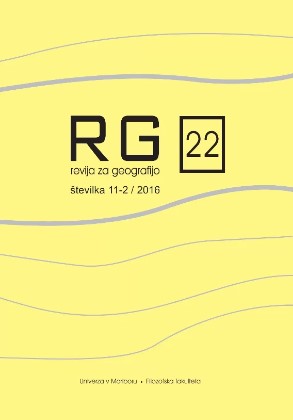Gender gap in Slovakia: selected problems of education and career
DOI:
https://doi.org/10.18690/rg.11.2.3962Keywords:
gender gap, education, career, Slovakia, leaky pipelineAbstract
The article focuses on the gap between women education and their career. Women’s education has significantly increased in a few last years, but their position on the labour market has been more difficult in comparison with men. The share of economical active women and also the share of working women with higher education have been growing till the present time. However, it is questionable how do women use their higher education in career or whether they can build even some career. We have used the data from Statistical Office of the Slovak Republic and some problems have been presented in the area of Slovakia on the level of regions (kraje).
Downloads
References
Blickenstaff, J.C. 2005: Women and science careers: leaky pipeline or gender filter? Gender and Education, 17-4, pp. 369-386. https://doi.org/10.1080/09540250500145072
Cukrowska-Torzewska,E., Lovasz,A. 2016: Are children driving the gender wage gap? Economics of Transition, 24-2, pp. 259-297. https://doi.org/10.1111/ecot.12090
Danielová, K., Lauko, V. 2015: Gender gap: Educated Women and Men and Differences in Career Pths After Degree Attainment.
DiPrete, T.A., Buchnann, C. 2006: Gender-specific trends in the value of education and the emerging gender gap in college completion. Demography 43-1, pp. 1-24, ISSN 0070-3370. https://doi.org/10.1353/dem.2006.0003
Jackson, L.W. et al 2009: Educate the Women and You Change the World: Investing in the Education of Women is the Best in a Country’s Growth and Development. Forum on Public policy, 2009-2, pp. 1-28.
Kirchmeyer, C. 2006: The different effects of family on objective career success across gender: A test of alternative explanations. Journal of Vocational Behavior, 68, pp. 323-346. https://doi.org/10.1016/j.jvb.2005.05.002
Leemann, R.J., Dubach, P., Boes, S. 2010: The Leaky Pipeline in the Swiss University Systém. Identifying General Barriers in Postgraduate Education and Networks Using Longitudinal Data. Swiss Journal of Sociology, 36-2, pp. 299-323.
Morgan, S.L., Gelbgiser, D., Weeden, K.A. 2013: Feeding the pipeline: Gender, occupational plans, and college major selection. Social Science Research, 42, pp. 989-1005. https://doi.org/10.1016/j.ssresearch.2013.03.008
Schmid, T., Brandt, M. Haberkern, K. 2012: Gender support to older parents: do welfare states matter? European Journal of Ageing, 9-1, pp. 39-50. https://doi.org/10.1007/s10433-011-0197-1
Valcour, M. Ladge,J.J. 2008: Family and career path characteristics as predictors of women’s objective and subjective career success: Integrating traditional and protean career explanations. Journal of Vocational Behavior, 73, pp. 300-309. https://doi.org/10.1016/j.jvb.2008.06.002
Waldfogel, J. 1998: Understanding the “Family Gap” in Pay for Women with Children. Journal of Economic Perspectives, 12-1, pp. 137-156. 10.1257/jep.12.1.137
Census 1991. Statistical Office of Slovak Republic.
Census 2001. Statistical Office of Slovak Republic.
Census 2011. Statistical Office of Slovak Republic.
DATAcube. Statistical Office of Slovak Republic.
Eurostat, RAMON – Reference And Management of Nomenclature. Available: http://ec.europa.eu/eurostat/ramon/nomenclatures/index.cfm?TargetUrl=LST_NOM_DTL&StrNom=NACE_REV2
Downloads
Published
Issue
Section
License
Copyright (c) 2016 Katarína Danielová, Viliam Lauko

This work is licensed under a Creative Commons Attribution 4.0 International License.
